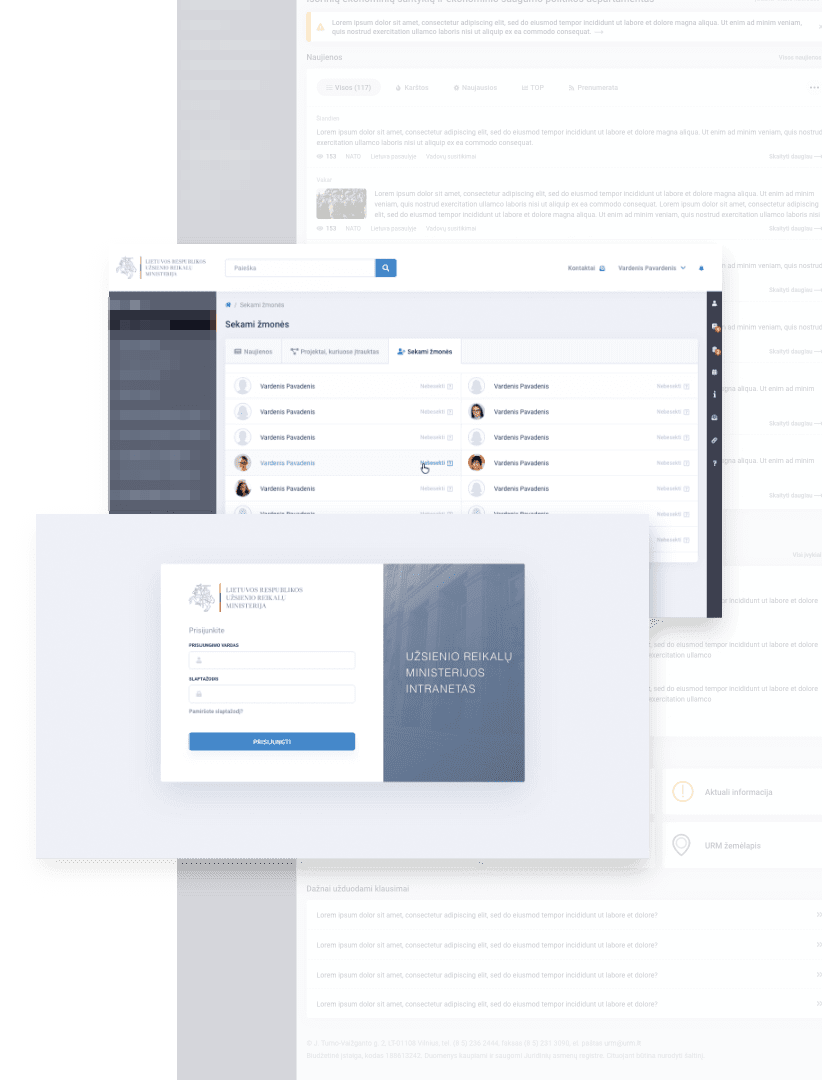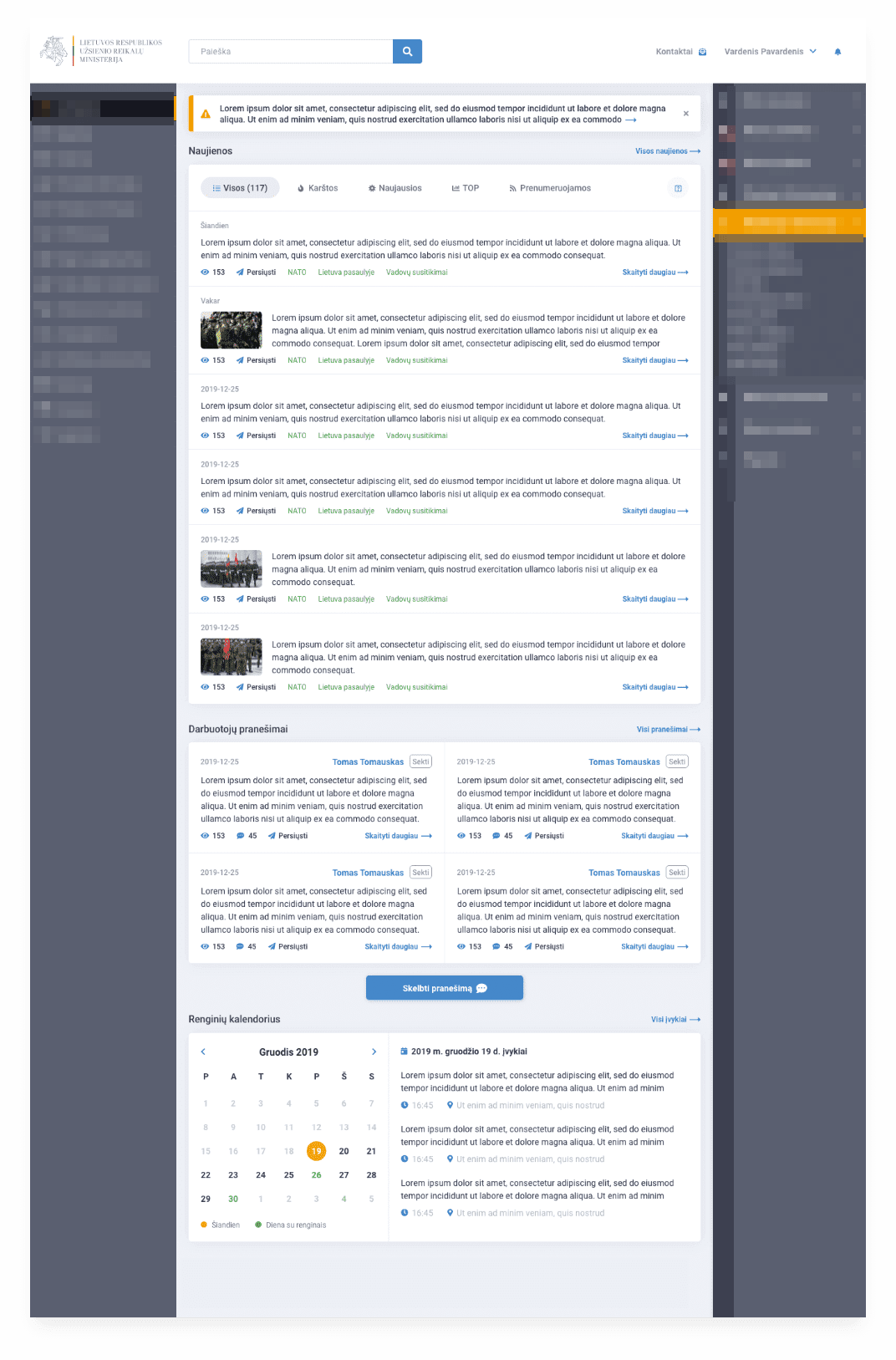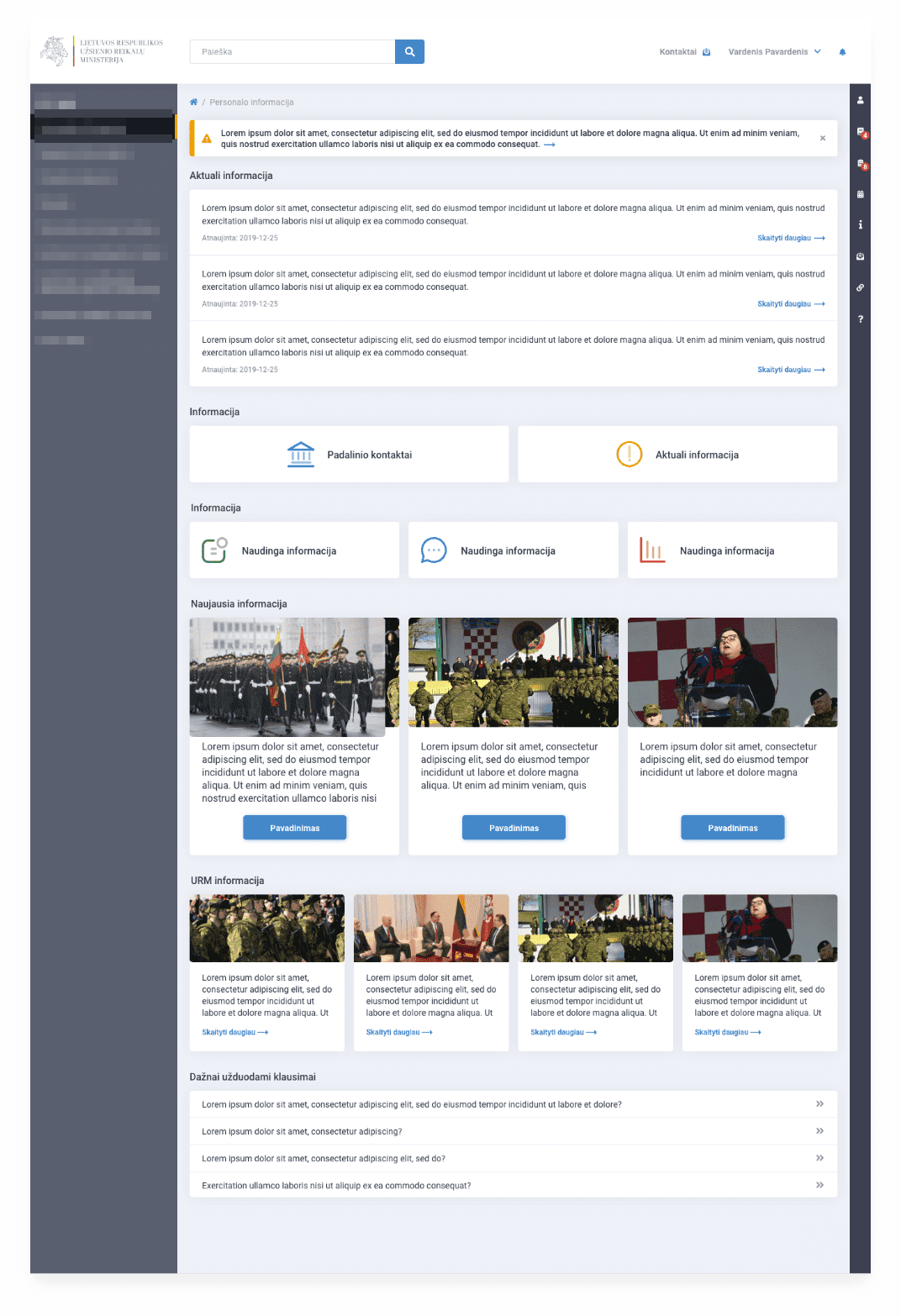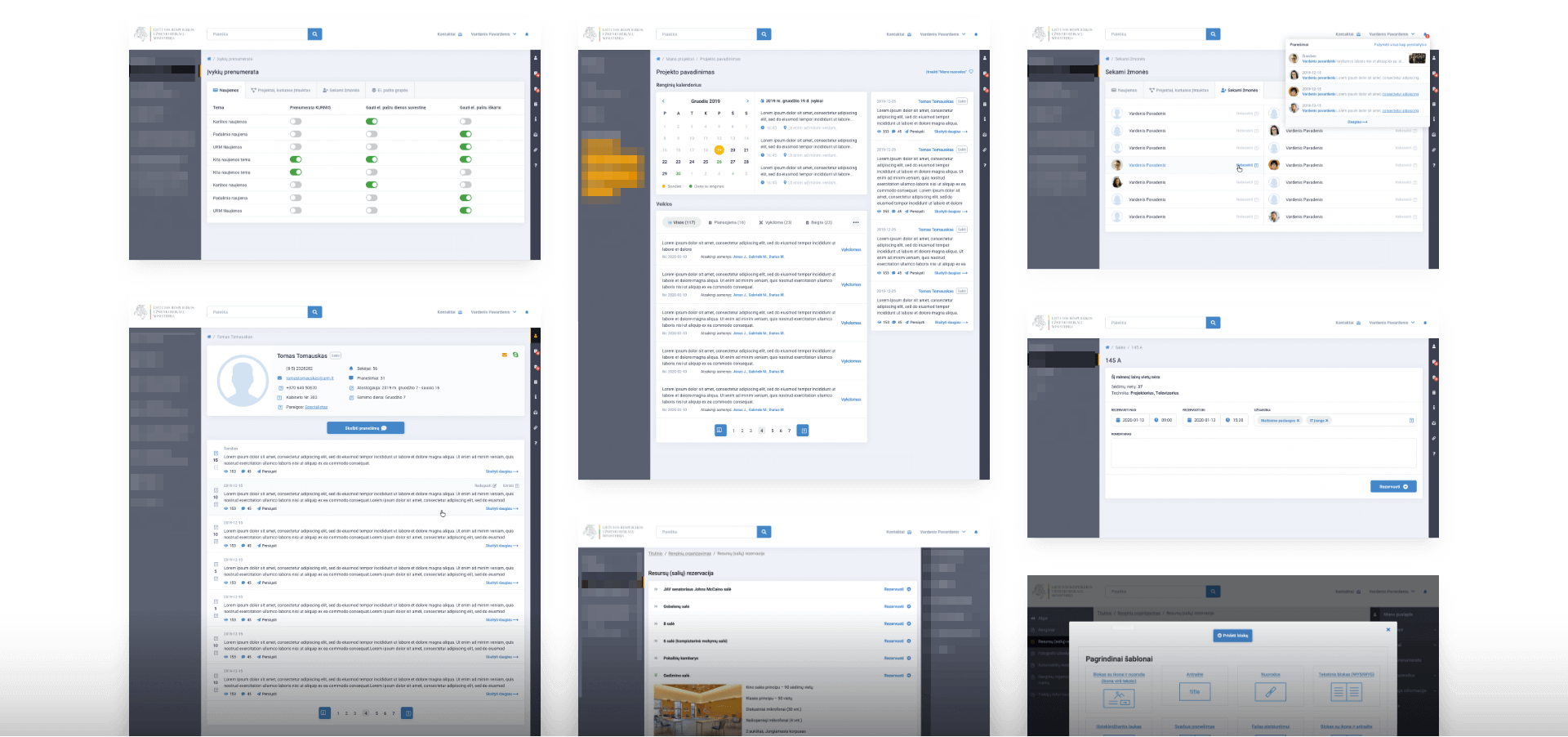KURMIS – daily information system of the ministry of Foreign affairs

About project
The daily information system (KURMIS) of the Ministry of Foreign Affairs of the Republic of Lithuania is designed to develop communication among the staff of the Ministry of Foreign Affairs of the Republic of Lithuania, and diplomatic missions and consular posts of the Republic of Lithuania, missions in international organisations and special missions, to enable them to promptly receive relevant information from the Ministry of Foreign Affairs and missions necessary to perform work functions, and to strengthen informal contacts among employees of the Ministry of Foreign Affairs and missions.
The main functions of the system are as follows:
- Team management of documents and their publication to authorised users;
- Publication of information inside the ministry;
- Use of a common calendar;
- Staff-to-work communication;
- A common social network of ministries, departments and working groups;
- Information about users;
- Media news stream;
- Project management.
Results of the project:
- An intranet platform has been designed for authenticated staff of the institution.
- An extranet website has been created for authenticated users with limited content imported from the intranet system on a regular basis.
- The architecture of the intranet platform supports a complex model of rights and user roles, which defines the access (reading, writing, deleting) rights to the headings of different content parts, subdivision, project group, etc. at the level chosen.
- The intranet has been developed as a social network platform where employees can create personal pages: handle data such as contacts, positions and function descriptions, CVs, photos; publish notices, share content with selected staff groups, comment on messages, evaluate, respond to comments, follow rapporteurs, etc.
- The structure of the subdivisions of the institution and the search for contacts: regular update of contact data is ensured by importing data from internal information systems and granting access to the employee for the handling of personal data.
- Modern means of communication allow responsible editors to publish news, reports, adverts and events.
- Rich content management tools allow editors to create subpages of subdivisions, to flexibly construct pages and handle the content it contains using a library of content blocks and widgets.
- The project management subsystem allows staff to create projects and working groups, to share project-related documents and materials, to organise discussions in the working group, to delegate tasks and manage project activities, to create and coordinate documents, to receive e-notifications related to the project communication.
- The flexible tools for managing the huge flow of messages and informing stakeholders in the most efficient way that meets the needs of the individuals have been implemented in the system. The functional e-subscription subsystem allows the provision of targeted information to interested parties about intranet messages, and the user can control the subscription settings by selecting the way of receiving messages: to receive a summary of events by e-mail once a day, to receive instant messaging by e-mail or system messages in the intranet. An employee may subscribe to notifications according to heading, subject, type of message, project, subdivision or person.
- A reservation subsystem for resources (countries, cars, IT equipment, etc.) of the institution has been developed that allows the availability of resources to be checked in the calendar, reserving the resource in free time, receiving reservations for responsible administrators, confirming, editing, cancelling or transferring them to another free time.
- The attendance data accounting and the means of displaying statistics in graphic and numerical form, and the export of data to open formats have been implemented in the system.
-
Year
2019 - 2020 -
Client
Ministry of Foreign Affairs of the Republic of Lithuania -
area
URM Intranetas Extranetas Socialinis tinklas
Implemented features





























